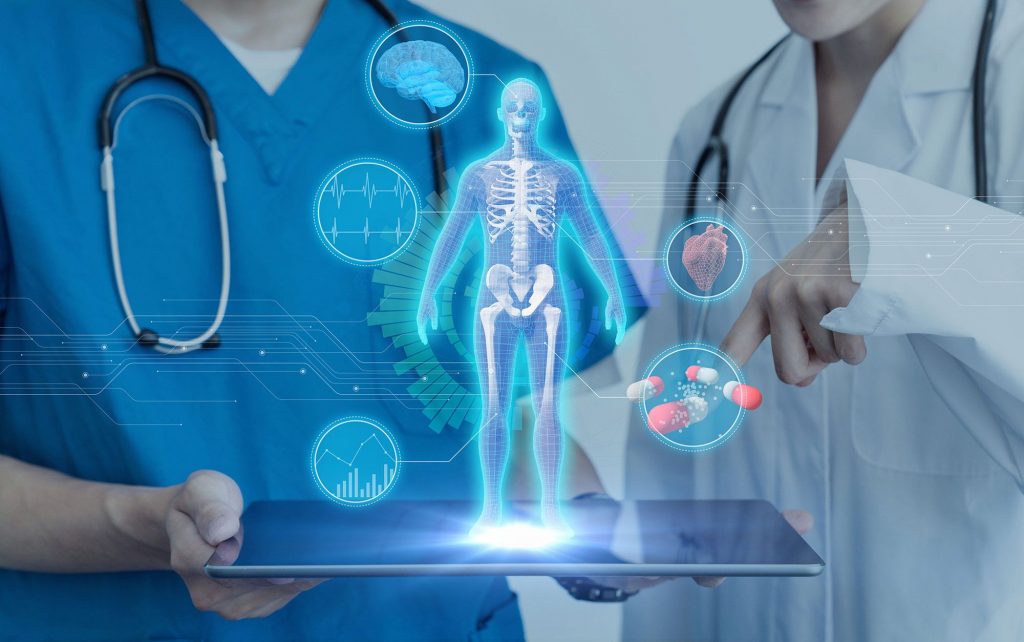Don’t want to go for MBBS? Here is the list of courses you can opt for Instead
As the common misconception follows, the medical stream equals to an MBBS degree only. This has never been the case and is simply a result of a narrow view in the midst of the masses. So if you are looking to pursue the medical stream, becoming a doctor isn’t one and the only option you have.

In this article, we will talk about the different professions available for students who opted for biology in the 10+2 science stream. The spotlight has always been given to core medical options like MBBS or BDS, which deviates the attention of a student from other equally worthy courses. In this article, we would like to shed light on the other promising options rather than MBBS and BDS.
Bachelor of Medical Laboratory Technology (BMLT)
Bachelor of Medical Laboratory Technology (BMLT) is a three-year undergraduate degree that helps you gain practical and technical knowledge of laboratory equipment and laboratory diagnostic procedures. The duration of this course is 3 years which is divided into 6 semesters.
Bachelor of Medical Laboratory Technology (BMLT) offers thorough knowledge about laboratory equipment and laboratory diagnostic procedures. The course is helpful for students who wish to pursue a career in the management of laboratories, advancement in laboratories, and instrumentation.
With BMLT being one of the fastest-growing fields in the healthcare sector, the requirement for competent professionals is rising every day for the treatment of swiftly growing diseases. A degree in BMLT helps you gain practical and technical knowledge for the right diagnosis and how to effectively run biochemical laboratories.
After pursuing a degree in BMLT, one can find jobs in areas such as healthcare clinics, government, and private hospitals, medical laboratories, research laboratories, and others.
The main aim of the course is to train candidates in the management of operation theatre, effectively handle various medical equipment and expertise in applying medical standards.

B.Sc Nursing
Bachelor of Science in Nursing or B.Sc Nursing is a 4-year undergraduate course. The minimum eligibility criterion for pursuing this course is the successful completion of a 10+2 level of education in Physics, Chemistry, and Biology. In India, the course is registered and controlled by the Indian Nursing Council.
The duration of the B.Sc Nursing course is generally 4 years but it varies as per the institute or university by their rules. Nursing Course is centered on humans to enable them to attain, maintain, or recover optimal health and quality of life. This course involves the nursing of the wounded or ill-treating patients with care, affection, and patience to aid their recovery or prognosis.
As per the Indian Nursing Council, the course is offered under the choice-based credit system (CBCS). The program will be specifically crafted by the college or university that will offer the program but they will have to stand by the regulations specified by INC. As per the guidelines, the students will pursue foundational, core, and elective courses during the course.

Auxiliary Nurse Midwifery in Nursing
Auxiliary Nurse Midwifery in Nursing or simply ANM is a two-year undergraduate certificate-level course in nursing which is divided into 1½ years of teaching and 6 months of internship. The duration of the course differs from institute to institute. The course provides knowledge about fields of medicine, healthcare, and providing medical assistant to families, individuals, society, and necessary measures for maintaining a good quality of life.
A.N.M course is available in both part-time as well as full-time structure. ANM course trains students and makes them capable of working as basic health workers. They have to treat patients, take care of their health, and work on their rehabilitation.
Auxiliary Nursing Midwifery focuses on the study of health care of various individuals. It also taught about how to take care of equipment, setting up Operation Theater, provide medication timely to patients and maintain records.
General Nursing and Midwifery (GNM)
GNM stands for General Nursing and Midwifery. It is a 3½ years long Diploma program. The academic program is 3 years long and 6 months internship.
It is designed for aspirants who want to pursue a career in clinical nursing. The program teaches candidates how to care for individuals who are sick or have been injured to help them attain full recovery. Although the curriculum design of the course varies from university to university, GNM courses are designed to prepare the students for the clinical approach of handling patients. The curriculum of some universities includes a six-month internship at the end of the course and the diploma is granted only after the candidates complete this internship.
The GNM course has been designed to enable eligible candidates to address the health needs of the country, community, and individuals.
BAMS (Bachelor of Ayurvedic Medicine And Surgery)
BAMS is an undergraduate course that teaches Ayurveda and uses it in the treatment of patients. It is a 5.5-year long bachelor degree course which includes 4.5 years of academic sessions and 1 year of internship.
To pursue the BAMS course in Indian colleges/ universities, aspirants should clear Class XII in the Science stream with PCB (Physics, Chemistry, and Biology) subjects. BAMS curriculum consists of topics such as modern anatomy, principles of medicines, physiology, social and preventive medicines, forensic medicine, principles of surgery, toxicology, ENT, botany, and pharmacology.
BHMS (Bachelor of Homeopathic Medicine and Surgery)
BHMS is an undergraduate course that provides theoretical and practical knowledge of the homeopathic medication system to the students. BHMS is a 5.5-year long bachelor degree course which includes 4.5 years of academic sessions and 1 year of internship. To pursue a BHMS course in Indian colleges/ universities, aspirants should clear Class XII in the Science stream with PCB (Physics, Chemistry, and Biology) subjects.

Candidates are required to qualify for the NEET Entrance Exam for getting admission into top colleges. BHMS curriculum consists of topics such as Human Anatomy, Immunology, Principles of Homeopathy, and Pathology. Homeopathy is emerging as one of the fastest-growing professions offering global career opportunities.
It is no longer essential for a student to only focus to become a doctor if he takes up the medical field. There are so many other career avenues that offer similar job satisfaction and appreciation. Biology as a subject is expanding and it is only natural that its derivatives expand too.
Since these choices are innumerable, it is obvious that confusion will follow. A student should research the options available to them and look through its contents to recognize their plus and minus points before taking a decision. One should make prudent use of the internet for this research, by using verified websites that aim to provide such information to students.